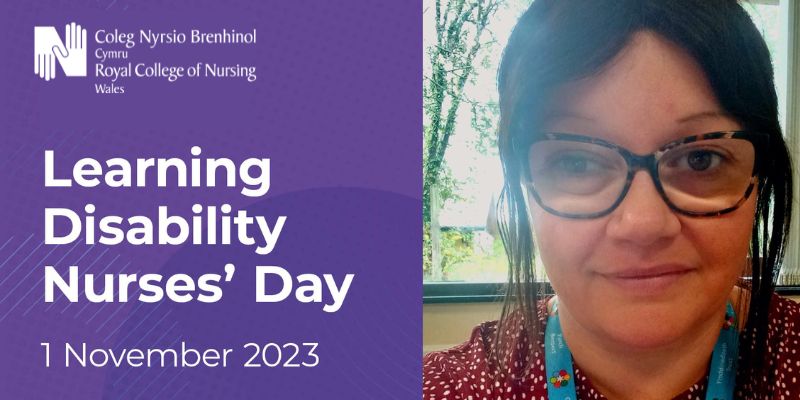
What inspired you to become a nurse? how did you decide to specialise in Learning Disability Nursing?
I have experienced first hand the profound impact of effective individualised care on those with learning disabilities and their families. I actually come from a non-clinical background and have management and admin experience in other sectors.
Prior to commencing my nurse training, I researched the different fields of nursing and came across a video of Ruth Northway and another course lecturer talking about their work and research in learning disability nursing that inspired me. I knew from that moment, that was the path I wanted to take.
For that reason, I think we can’t underestimate the impact of inspiring role models and mentors not just at the beginning of our careers, but as we continue to learn and progress in our professional development. I am very fortunate to work with some very experienced learning disability nurses, their value base and drive to improve the lives of individuals with a learning disability inspires me daily.
Tell us about the work your liaison team does
We are a highly values-led team. We focus on the unique needs of the individual and champion equitable health care for people with learning disabilities whilst empowering patients to take ownership of their health.
A large part of my role is education. People with learning disabilities face unique challenges both accessing and undergoing health care and we advise and train general practice staff to provide the best level of individualised care, implementing reasonable adjustments as required.
Over the last six months, we have successfully trained over 70 learning disability champions throughout a variety of departments, upskilling them in Learning Disability care best practice to take back to their own discipline. We do a lot of work with the Paul Ridd Foundation: a charity who campaign for fair access to health care and provide training, e-learning, and support to health workers and families. The passion and drive this organisation has to improve the lives of individuals with a learning disability is truly inspiring.
I’ve never wanted to move away from my current role and retention is very strong with our team, showing the rewards and continuing opportunities the team provides.
Tell us about the challenges and rewards of learning disability nursing
One of the biggest issues that people with learning disabilities face in health care is ‘diagnostic overshadowing’, meaning that their disability is seen before any other presenting problem. The life expectancy of someone with a learning disability is significantly lower than average and reducing avoidable deaths remains a major priority in our work.
It is often challenging for patients to communicate their needs and symptoms to get the care they need. Educating health professionals to adjust their methods of assessing and treating patients effectively (i.e., picking up on non-verbal cues, interpreting what is often dismissed as ‘problematic behaviour’ as a sign that something is wrong) to get to the heart of the problem and deliver the correct care is essential.
A big highlight for me was seeing a patient who had never been able to have bloods taken before due to various triggers successfully overcoming this by a process of de-sensitisation. Another patient was struggling to read the correspondence being sent to them to arrange an appointment. Through adjustments to communication, this led to them having their first annual learning disability health check. It’s moments like these that really make me love what I do.
Are there misconceptions about LD nursing that need dispelling?
The phrase which irritates me the most is: ‘you’re not a real nurse’… This is a view which I will never understand because the title ‘nurse’ is so diverse and that should always be celebrated.
The skills you learn as a learning disability nurse in leadership, advocacy, communication and clinical expertise will set you up for life.
What’s next for you?
I am currently studying for my master’s degree at the University of South Wales, aiming to improve practice and patient care further. I am taking a module on implementing change and completing a research project that I hope to implement in my work whilst I develop it.
What would you say to encourage people to come into LD nursing?
I would say to just go for it. You will not regret it. If you want to lead with compassion, understanding and determination, then Learning Disability nursing is the place for you and we would love to have you!





